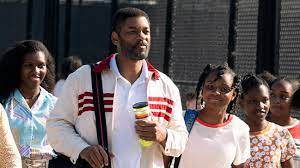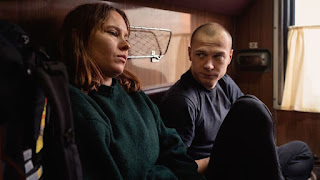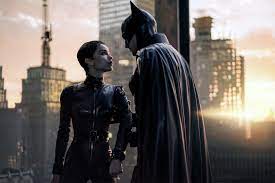Who could have predicted that the 94th Academy Awards would produce a WTF moment even greater than the Moonlight/La La Land fiasco of 2017?
Perhaps because the Oscars honor the illusory power of movies, most folks (me included) couldn't tell whether the astonishing moment in which Will Smith slapped Chris Rock was staged or genuine.
When the camera (sans sound) showed Smith mouthing harsh words at Rock, the outburst suddenly seemed serious.
Oh, and by the way, the Oscars honored CODA -- a small feel-good movie -- as the year's best picture, a coup for Apple TV+ and the world of streaming.
Let's face it, though. In the end, all that anyone's going to talk about post-Oscar is the fact that Smith took offense at a joke Rock made about Smith’s wife, Jada Pinkett Smith.
Rock said that he looked forward to seeing Pinkett Smith, whose head is shaved, in GI Jane 2, a surprisingly dated reference to GI Jane, a 1997 movie featuring a shorn Demi Moore in full warrior mode.
A duly aggrieved Smith strode to the stage and smacked Rock in the face. Pinkett Smith suffers from alopecia and has said that's why she shaved her head, but still ... a roundhouse in the middle of the Academy Awards?
Not long after, Smith won the best actor Oscar for playing Richard Williams, father of Venus and Serena Williams, in King Richard. How would he address what had happened?
"Richard Williams was a fierce defender of family," Smith said after accepting the award. "In this time in my life, in this moment, I'm overwhelmed by what God is calling on me to do and be in this world."
No comment needs to be made about whether this constitutes a statement of humility or grandiosity. You be the judge. Smith also said, "Art imitates life -- I look like the crazy father, just like they said about Richard Williams ... But love will make you do crazy things."
And I thought the dancing during a segment of remembrance for those who died during the past year might turn out to be the evening's strangest moment.
Or how about Wanda Sykes touring the Academy Museum of Motion Pictures while making lame jokes?
When it came to the awards, there were no real surprises.
Oscars were given to those who were expected to win them. No single movie dominated, aside from Dune in the so-called technical categories.
Some closing thoughts:
Amy Schumer, who co-hosted with Sykes and Regina Hall, delivered what amounts to an opening monologue. Schumer put some bite in her jokes. An example: She mocked Being the Ricardos as a laughless movie about one the funniest women who has ever lived.
I'm happy for CODA. I'm glad that Hollywood (at least in its estimation) is the most diverse place on earth, and I'm amazed that so many films had landmark anniversaries.
The Godfather at 50 and what seems like a zillion years of James Bond, OK. But the 28th anniversary of Pulp Fiction? Who knew that 28th anniversaries were a thing?
And is anyone really celebrating the 30th anniversary of White Men Can't Jump? I liked that movie but never felt compelled to keep track of its birthday.
Oh, I almost forgot, Rock was on hand to present the Oscar for best documentary. A genuinely moved Questlove won for Summer of Soul.
Before opening the envelope, a slightly nonplussed Rock referred to his unexpected encounter with Smith's right hand by noting, "That was the greatest night in the history of television."
An overstatement perhaps, but who doubts that 2022 long will be remembered for the slap?
By way of summation, I'll quote this headline from The New York Times website. Kudos to the Times for its deadpan embodiment of the entire wacky and indigestible evening.
"Oscars: Will Smith Hits Chris Rock After Joke, Then Wins Best Actor."
I guess it's true: There really is no business like show business.
If you're looking for a complete list of winners, try The Hollywood Reporter.

















